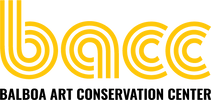|
BACC marked this year's Preservation Week – which had the theme "Preserve Community Archives" – by posting action items on our social media pages to help people learn how to better preserve the art in their communities. In the same spirit of the week we compiled and archived the posts here for easy access. 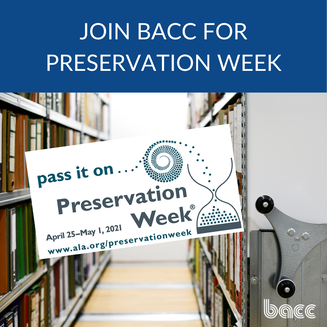 INTRO Next week (April 25 - May 1) is Preservation Week! What is Preservation Week, you ask? Well, it was all started by the American Library Association. In 2005, the first comprehensive national survey of the condition and preservation needs of the nation’s collections reported that U.S. institutions hold more than 4.8 billion items. Libraries alone hold 3 billion items (63% of the whole). A treasure trove of uncounted additional items is held by individuals, families, and communities. These collections include books, manuscripts, photographs, prints and drawings, and objects such as maps, textiles, paintings, sculptures, decorative arts, and furniture, to give just a sample. They include moving images and sound recordings that capture performing arts, oral history, and other records of our creativity and history. Digital collections are growing fast, and their formats quickly become obsolescent, if not obsolete. Some 630 million items in collecting institutions require immediate attention and care. 80% of these institutions have no paid staff assigned responsibility for collections care; 22% have no collections care personnel at all. Some 2.6 billion items are not protected by an emergency plan. As natural disasters of recent years have taught us, these resources are in jeopardy should a disaster strike. Personal, family, and community collections are equally at risk. Now the ALA encourages libraries and other institutions to use Preservation Week to connect our communities through events, activities, and resources that highlight what we can do, individually and together, to preserve our personal and shared collections. This year’s Preservation Week theme is Preserve Community Archives. BACC will be posting action items on how YOU can help preserve the art in your community throughout this year's Preservation Week. Stay tuned! 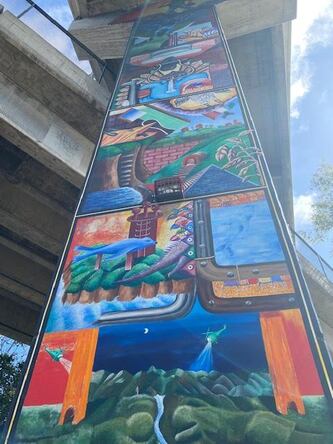 APRIL 25 Welcome to Day 1 of Preservation Week! BACC will be posting an action item every day through May 1 that describes how you can help "Preserve Community Archives" – the theme of this year’s Preservation Week. What do we mean by archives? Archives can mean both a collection or assemblage of historical records (like documents, photographs, newspapers, film footage, audio recordings, books) and also the place in which these records or historical materials are preserved (like a library, historical society, or hall of public records). Your own, personal archive might include photographs, old tickets or playbills, letters, notes, artwork, documents, family history ... or really, anything that holds information, a story, or memory that is important to you. Community archives hold our shared history, made up of all of the things we mentioned above, but also so much more, like oral histories/storytelling, public artwork, and intentional spaces (like memorials, community gardens, festivals). Today’s action item for how you can help Preserve Community Archives: Take the time to visit and appreciate a community artwork or community space. How is it meaningful to the community, and how is it meaningful to you? Maybe share a photo of it with a friend, or post it on social media (don’t forget to tag the artist if you can!). If you see any stray litter around it, maybe pick it up and throw it away or recycle it. It’s up to all of us to both enjoy and take care of our favorite shared spaces! 📷: One of our favorite community spaces with artwork is Chicano Park in Barrio Logan in our city of San Diego. The Chicano Park Historical Documentation Project Committee and San Diego State University is working to archive the site through comprehensive documentation of the art, history, and culture of Chicano Park. Check it out and support the project at this link: www.chicanoparksandiego.com/ 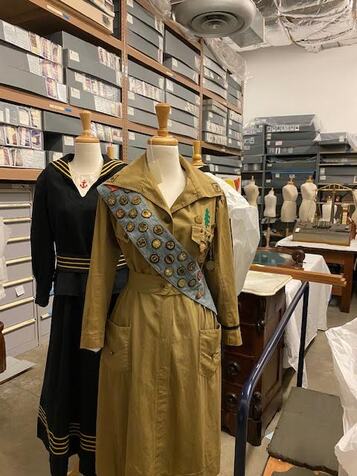 APRIL 26 Hello, Monday and Day 2 of Preservation Week! As we start the week, we’d like to highlight our local cultural heritage institutions that work hard to preserve and share our history. Balboa Park alone has 17 museums! And, did you know that there are HUNDREDS of museums, historical societies, community centers, libraries, and visitor centers in San Diego County alone? Today’s action item for how you can Preserve Community Archives: Pick a day to go visit (COVID-19 regulations permitting) and support one of these sites, whether it’s a longtime favorite or one that is new to you. There really is something for everyone. We’ll tag a few here to get you started. Barona Cultural Center & Museum Bonita Museum and Cultural Center Centro Cultural de la Raza Chula Vista Heritage Museum Institute of Contemporary Art, San Diego Japanese Friendship Garden Museum of Making Music Museum of Us New Americans Museum San Diego Chinese Historical Museum San Diego History Center 📷: Here’s a peek of the archives at the San Diego History Center (tagged above), which has an incredible collection of local historic documents, photographs, clothing, objects, art, and oral histories. 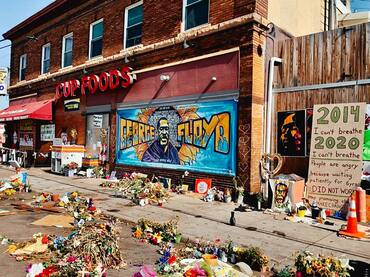 APRIL 27 Today is Day 3 of Preservation Week. Today we want to recognize that communities come together not only to celebrate but also to protest and mourn. From historic suffrage and civil rights protests to the more recent Women’s March, Standing Rock Sioux Dakota Access Pipeline (No DAPL) protests, and Black Lives Matters protests, just to name a few, it is essential that we keep moments of change and social activism alive through our shared story-telling and shared community archives. Want to know more about how to preserve your protest art for the future? Today’s action item is to check out our Preserve Protest Art tip sheets on our website here. Also, visit the ALA website today for a free preservation webinar on Collecting and Preserving after Tragedy. Following the 2016 Pulse Nightclub shooting in Orlando, FL, the Orange County Regional History Center launched an extensive rapid response collecting initiative to preserve the history of the tragic event and the community’s response. The Collections Manager, Whitney Broadaway, will share how the museum collected at memorial sites and inside the club, especially concerning the stabilization and preservation of items that underwent heavy exposure to the elements. Serving as an introductory to rapid response collecting, this webinar will discuss how the care of the collected items after the Pulse Nightclub shooting continued behind the scenes and is ongoing still today. 📷: George Floyd community-created memorial in MN. Photo by Jéan Béller. 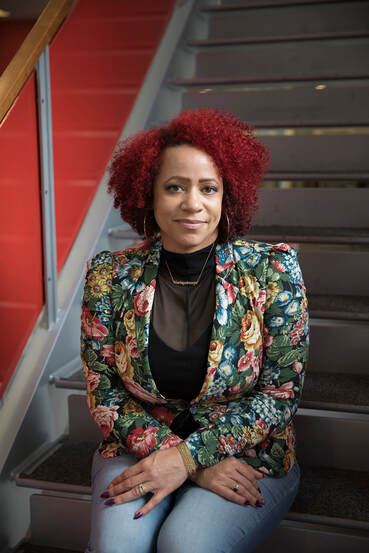 APRIL 28 It’s a wonderful Wednesday here in San Diego, and we wanted to turn the spotlight towards this year’s incredible American Library Association Preservation Week chair: Nikole Hannah-Jones. From the ALA site: Pulitzer Prize-winning investigative reporter and New York Times Magazine journalist Nikole Hannah-Jones has been appointed as the honorary chair of Preservation Week 2021, celebrated April 25-May 1, 2021. As the creator of The New York Times's landmark 1619 Project, Hannah-Jones examines slavery’s modern legacy, reframing the way we understand the history of slavery and the contributions made by Black Americans to this nation. Her essay, "Our Democracy's founding ideals were false when they were written. Black Americans have fought to make them true," was awarded the 2020 Pulitzer Prize. In addition to developing the 1619 Project, Hannah-Jones has written extensively about school resegregation across the country and examined the decades-long failure of the federal government to enforce the landmark 1968 Fair Housing Act. In 2016, Nikole Hannah-Jones co-founded the Ida B. Wells Society for Investigative Reporting, a training and mentorship organization dedicated to increasing the ranks of investigative reporters of color. The 2021 theme for Preservation Week is “Preserving Community Archives.” Community archives are organized by members of physical or self-identified communities—specifically those marginalized by traditional collecting institutions—and are focused on documenting and interpreting their own histories. As a journalist and founder of the 1619 Project, Hannah-Jones understands the significance of local and community archives collecting and preserving stories that counter dominant historical narratives. By exploring the history of civil rights and racial injustice in America, Nikole Hannah-Jones helps us examine and gain a better understanding of how these issues impact American society. Her work demonstrates the importance of cultivating and maintaining a community space of representation. Furthermore, her deep knowledge and understanding of American history, civil rights, and racial injustice make her the ideal candidate for representing Preservation Week and helping us recognize the importance of preserving community archives and the social justice power they represent. As Preservation Week 2021 Honorary Chair, Hannah-Jones will appear in Preservation Week artwork and will chronicle preservation efforts through various social media channels. You can also follow her on Twitter as she engages in discussions surrounding civil rights and social justice. Our call to action today is to check out Hannah-Jones’ work, whether it’s her twitter feed, articles linked on her website, or the 1619 Project. 📷: © James Estrin, NYTimes 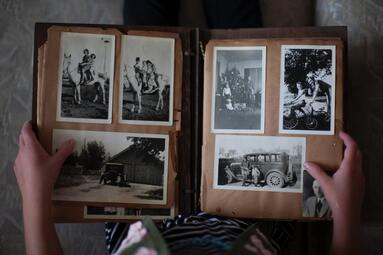 APRIL 29 Welcome to Thursday, Day 5 of Preservation Week! Since we are all individual members of a greater community, it’s also important that we preserve our own personal or family videos, photos, documents, and keepsakes so they can last for future generations. While BACC is certainly not recommending hoarding of every letter, bill, scrap, or photo you’ve ever taken, we highly encourage preservation with an editorial eye for those items you truly find special, meaningful, and important. Today’s action item: Pick a day or a weekend to look through your own archive and take the first steps towards safely housing them. The first steps generally include: ensuring that your collection is not going to be affected by too much light, heat, or moisture (no one wants moldy photos!); learning the right way to handle your items; picking the right storage containers and sleeves; and developing a labeling system. The American Library Association has a great “Take the First Step” sheet that helps you get going here! Our Associate Conservator of Paper also has an amazing video to get you started in the “Care of Paper” Instagram story saved in our highlights on Instagram or on our website here. 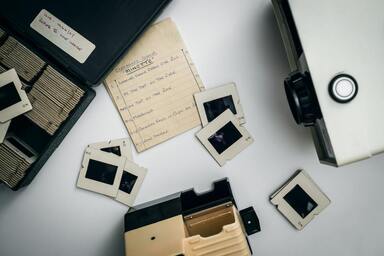 APRIL 30 Welcome to Day 6 of Preservation Week. Yesterday we touched on the importance of preserving your own personal archive. What did you find when you started looking? More than you expected? We sure did! Don’t let the overwhelm get to you. Once you’ve “taken the first step” to get everything in a safe environment and labeled/organized, you can take your time to pick the preservation projects that mean the most to you. Today, we are going to link you to more tools to continue the process once you’ve identified what you’d like to preserve. Lots of family albums to reorganize? And speaking of that, where do you buy archival products? We got you. Want to safely store and digitize those cassettes of your grandpa playing guitar? Oh, yes, we’ve got something for you. Heirloom quilts collecting dust? Home videos waiting to be compiled? What to do with all of your favorite family recipes? There are too many digital photos–what do you do with them all?! How do you scan something correctly, anyway? You name it, and we probably can recommend an easy tutorial video for that. Today’s action item is to pick just one personal archiving project, and keep going with it! This collection of 42 Preservation videos can get you started. Also, the American Library Association has a ton of great resources for your family collection here! Also, if you’re a San Diego local be SURE to check out the Digital Memory Lab at the San Diego Downtown Library! The Digital Memory Lab is a FREE, innovative do-it-yourself space for digitizing various audio/visual media formats, as well as scanning documents, slides, and negatives. Patrons will have access to knowledgeable library staff and volunteers, as well as instructions and orientations that explain how to digitize materials. Their mission is to provide users with the tools needed for the conversion and analysis of their digital projects so that they can ultimately proceed independently. 📷: Alexander Andrews 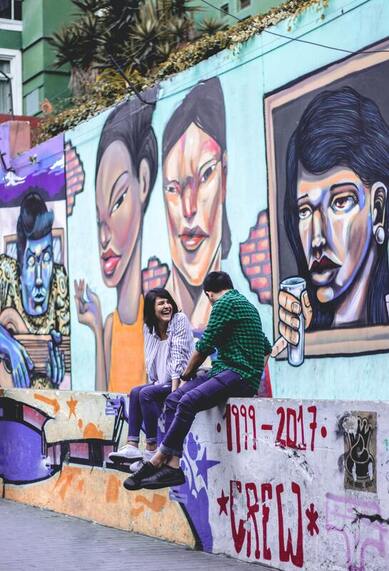 MAY 1 Happy Saturday and welcome to the final day of Preservation Week! And what a week it’s been. So many great memories! We can’t wait to ... archive them. 😉 Today we wanted to talk a little more about oral history and how that fits into our community archive. We really couldn’t have done a better job explaining it, so in the words of Jennifer Eidson from the Society of American Archivists: “Preservation activities involving tangible memories such as photographs or handwritten letters are so important to preserve one’s experience whether it’s a family photo, a hike through the Grand Canyon, or a Crossing the Line initiation in the United States Navy. When it comes to preserving someone’s intangible personal memories, one of the most effective preservation strategies is to conduct an oral history interview. But, what is that? According to the Society of American Archivists (SAA), it is ‘an interview that records an individual's personal recollections of the past and historical events.’ There are many organizations around the country that record oral history interviews for the sake of history. There are also many people who record interviews on their own for their families. Preservation Week offers these resources to those families, who know that a family member has had a unique or incredible experience in their life. Recording an oral history interview is one of the best ways to document those experiences so future generations can learn and benefit from them.” Today’s call to action is to think of someone in your life, especially from an older generation, and ask them to tell you some of their favorite life stories. Maybe even get their permission to record it so that the story can be archived and shared in the future. The Society of American Archivists and the Oral History in the Digital Age project have great resources to help you get started with recording oral histories. Thanks for being here with us this Preservation Week and have a great weekend! 📷: Romina Veliz Comments are closed.
|
Categories
All
Archives
June 2024
|
